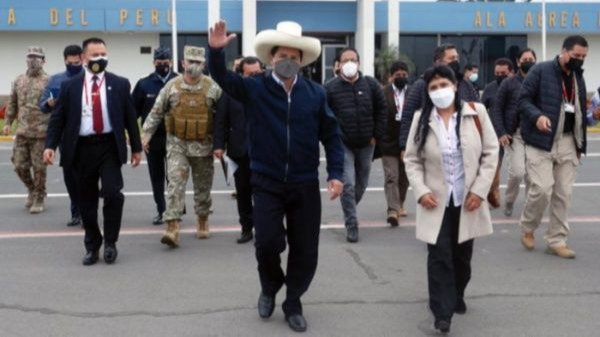
Peruvian government assures that Second Agrarian Reform seeks to promote social inclusion of more than 2 million agricultural producers. | Photo: Twitter @presidenciaperu
Lima, October 4 (RHC)-- The president of Peru, Pedro Castillo, the head of the Council of Ministers, Guido Bellido, and the members of the ministerial cabinet took part on Sunday in the launching of what is being called the Second Agrarian Reform in the city of Cusco.
Previously, the Peruvian president participated in the inauguration ceremony of the CITE-Agroindustrial Vraem, in the district of Pichari (Cusco), which will boost the competitiveness of producers and companies linked to the coffee and cocoa production chain.
In previous statements, Castillo indicated that the Second Agrarian Reform will allow the State to reach farmers with communications routes, technology and technical advice. "Some have believed that the Second Agrarian Reform is to take away land. Totally false. We have to get that out of our heads and it has not even been considered. It is not going to be done. It would be absurd for a government to do it."
He explained that with the agrarian reform, the pending issues of the first one, which gave farmers land to produce, will be promoted.
The Second Agrarian Reform is a government policy designed without expropriations or confiscations and seeks to guide public policies in favor of the development of family, community and cooperative agriculture.
This second norm includes a scheme for the mobilization and training of the producers, as well as the technification and industrialization of the national agriculture through the delivery of credits to these productive units that represent up to 97% of the total of the existing ones in the country.
In Saturday morning's ceremony, Castillo was accompanied by the First Lady of the Nation, Lilia Paredes, the Minister of Production, Yván Quispe; the executive director of the Technological Institute of Production, Sergio Rodríguez; the director of the CITEagroindustrial Vraem, José García. Afterwards, the Head of State met with agricultural producers and farmers of Vraem in Pichari.

